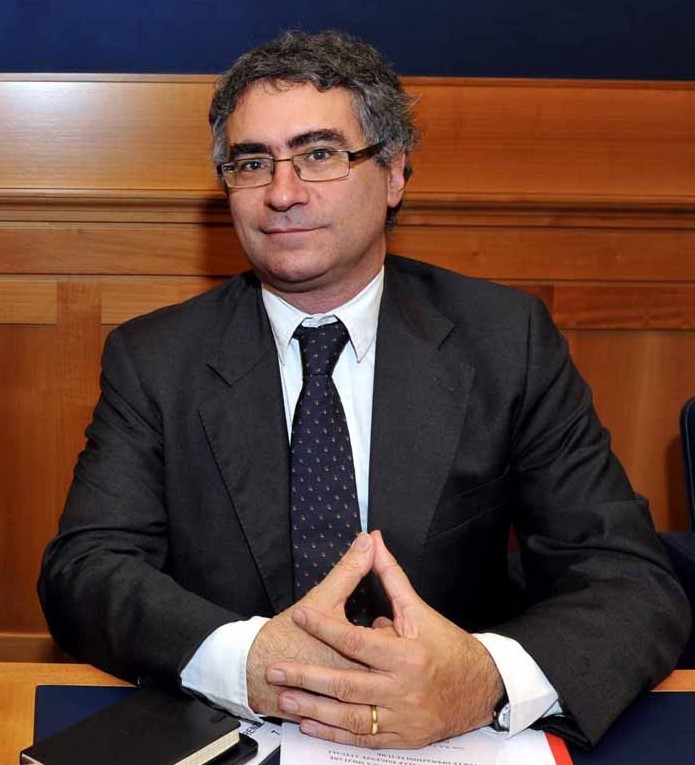30 April 2020
Interview with... Gregory Alegi, journalist and professor at LUISS
Journalist and professor at LUISS
[Cleared n°3/4 - anno XVII - march/april 2020]
Journalist and professor at LUISS
[Cleared n°3/4 - anno XVII - march/april 2020]

Professor Alegi, 11th September and Coronavirus: two unique events for air transport. What is the difference between the two events and what weaknesses of the system have they revealed?
Both the terrorist attacks of 2001 and the pandemic of 2020 have put air transport on its knees, emphasising the extremely low financial autonomy of airlines. The high fixed costs require huge volumes of sales with rather low profit margins. In other words, if earnings are made they are low, if losses occur they are heavy. Thus, even the larger and sure-footed companies have difficulty in coping with long crises, and their difficulties have ramifications throughout the entire chain, from airports to manufacturers, and even the directly-related sectors such as tourism, impacting the GDP of entire nations. Actually, the crisis of 2001 was operational and could be solved with new security procedures under the control of operators. The pandemic of 2020 is entirely external to airlines and it reminds us that no system, no matter how advanced, is ever unrelated to the environment and the society in which it operates.
The crisis caused by COVID-19 will force the airline industry to rethink its own rules. What are the measures that governments, and in particular the ICAO, could suggest to bolster passenger confidence and accelerate the recovery in the demand for air travel?
Air travel demand has traditionally been based on factors such as the GDP of various countries and the economic relations between the connected areas. In recent years, on the contrary, the growth has been driven by an increase in supply, from the creation of national carriers and hubs in the Middle East to the European low cost airlines, which use price leverage to attract more traffic than some destinations might otherwise generate. In both cases, carriers benefit from forms of support, like the construction of magnificent airports and the so-called co-marketing agreements, through which they can offer lower prices than their competitors. Although these are factors that distort the market, the ICAO has no particular remit in this field. The propensity to travel, especially for those "pointless" trips such as a weekend in Barcelona to celebrate one’s birthday with friends, will rather depend on the capability of the system to calm the waters after deliberately highlighting the risks of Covid-19. I wish them "good luck"...
Low cost airlines, which now rule the skies, have based their business on something which certainly needs to be rethought: distancing and aircraft loads. How will they address these challenges?
The intensive exploitation of aircraft – in terms of number of flights per day per aircraft, but also of number of seats on board – is one of the key profitability elements for low cost airlines. It is evident that, in the short term, these density levels must be reconsidered, at least until a vaccine is developed to solve the problem at the roots. This means that for a couple of years low cost airlines will have to rethink their business model, which is mainly based on large volumes, with all the consequences that this will entail. It is likely that some of the costs will be reduced through leverage on staff, by reducing the number of flight attendants. But with fewer passengers, the sales on board will drop as well as the interest of smaller destinations to support flights to boost their tourism. If they can survive this stage, I believe that low cost airlines will be able to go back to their previous operating model.
In late February, General Lamberto Bartolucci left us at the age of 95. In 1981, he guided the demilitarisation of air traffic controllers in such a balanced way that the controllers themselves asked for him to be in command of the Commissariato per l’Assistenza di Volo (the Commissariat for Flight Assistance, ENAV's predecessor) How do you remember those days?
I was honoured to spend a lot of time with General Bartolucci and I can testify that he used to talk about those years as the most important in his prestigious Air Force career in what once was the Ispettorato delle Telecomunicazioni e Assistenza al Volo [Inspectorate of Telecommunications and Flight Assistance]. He concluded his career as Chief of the Defence Staff, the highest rank in the Italian military forces. He arrived at the ITAV almost by chance and he started the transition from phonetic, manual systems to computerised systems and from military to civilian management. Of that difficult time, he remembered with amazement the insurrection by controllers in October 1979 – when the solution had been found and was about to be applied – and the lack of several political levels to take responsibility. And he was proud, in a general air of mistrust on the part of the civilian controllers, of how the military personnel were all united in supporting his appointment as a commissioner for the difficult transition that would subsequently give birth to ENAV.


